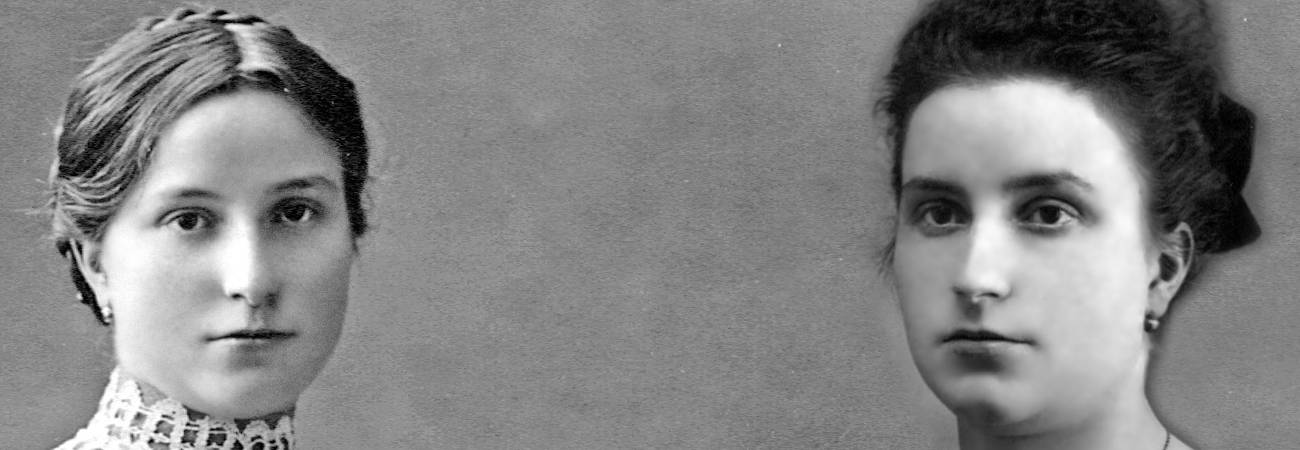Life and works of Maria Valtorta

She was born in Caserta to Lombard parents on March 14, 1897.
Her father, Giuseppe Valtorta, born in Mantova in 1862, served in the Nineteenth Regiment of the Light Cavalry Guides with the rank of chief armorer warrant officer. Good and submissive, he was to be the loving educator of his only daughter.
Her mother, Iside Fioravanzi, born in Cremona in 1861, had been a French teacher. Peevish and selfish, she oppressed her husband and daughter with irrational and sometimes cruel severity.
After coming close to dying at her birth, Maria was entrusted to a wet nurse with bad habits. At the age of eighteen months, when her family moved to Faenza to follow the transfer of the Regiment, the child shifted from the burning heat of the south (she attributed her passionate nature to this fact and to the milk of her wet nurse) to the temperate climate of the northern regions.
Later moves to Milan and Voghera marked the stages of her growth and her cultural and religious training, in which she displayed her strong character, outstanding capacities, and deep spiritual sensitivity. She crowned off her studies at the prestigious Bianconi School in Monza, which was her peaceful nest for four years, at the end of which she grasped what her inner life would be like in God’s plan.
In 1913 her father retired for health reasons, and the family established its residence in Florence, where it would remain for eleven-and-a-half years. Maria was content in that city, which suited her cultural sensitivity and, during the first world war, gave her the chance to exercise her love for her neighbor as a “Samaritan Nurse” at the military hospital. But in Florence she was also beset by very harsh trials through the actions of her fearsome mother and a subversive: the former twice crushed her legitimate dreams of love, and the latter struck a blow at her lower back on the street, paving the way for her infirmity.
It was then that Maria Valtorta got the providential opportunity to spend two years in Reggio Calabria, from 1920 to 1922, as the guest of relatives running a hotel who with their affection, joined to the natural beauty of the place, contributed to reinvigorating her in body and soul. During that vacation she felt new impulses towards a life rooted in Christ, but her return to Florence, where she would remain for two more years, submerged her again in bitter memories.
In 1924 her parents bought a house in Viareggio, where they settled and where an inexorable ascetic activity began for Maria expressing itself in firm intentions and culminating in heroic offerings of herself out of love for God and mankind. At the same time she devoted herself to the parish as the cultural delegate for the young women of Catholic Action and gave talks which began to be attended even by the nonobservant.
But it was harder and harder for her to move. On January 4, 1933 she left her house for the last time, with extreme exertion, and from April 1, 1934 on she no longer got out of bed.
On May 24, 1935 a young person who had been left orphaned and alone, Marta Diciotti, was taken into the house, and she became Maria’s helper and confidante for the rest of her life. A month later, on June 30, her beloved father died, and Maria nearly died of grief.
Her mother, whom she always loved by virtue of a natural duty and a supernatural sentiment, died on October 4, 1943, never having ceased to oppress her daughter.
